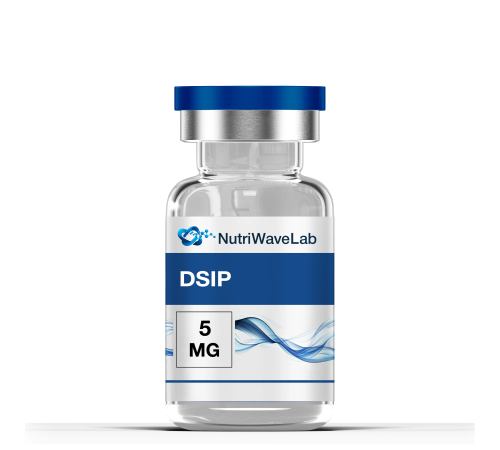
DSIP (Delta Sleep-Inducing Peptide)
Basic Characteristics and Functions
Delta Sleep-Inducing Peptide (DSIP) is a short peptide of natural origin, renowned for its ability to induce sleep in rabbits and initially isolated in 1977 from the brains of rats during slow-wave sleep. Since its discovery, DSIP has garnered increasing interest from researchers due to its numerous physiological and endocrine roles.
Mechanism of Action
DSIP regulates neurotransmitter levels in the brain, impacting sleep and stress responses. It modifies the activity of enzymes and systems that utilize serotonin, thereby adapting behavioral responses in organisms. DSIP also stabilizes levels of neurotransmitters such as adrenaline, noradrenaline, dopamine, and serotonin, which helps prevent seizures and protect against stress.
Impact on Sleep
DSIP significantly influences sleep regulation by improving disturbed sleep patterns. It has proven effective in inducing delta sleep, a deep and restorative sleep phase essential for physical and mental recovery. This peptide is also recommended for treating sleep disturbances associated with alcohol withdrawal, where it helps regulate sleep patterns disrupted by alcohol consumption and subsequent withdrawal.
Pain Management
Research indicates that DSIP has a significant impact on reducing pain, particularly in chronic conditions. It is used to decrease pain levels in patients with chronic migraines, vasomotor headaches, and psychogenic pain attacks. The peptide’s interaction with the endogenous opioid system may explain its analgesic properties.
Neuroprotection and Recovery
DSIP has demonstrated potential in
neuroprotective applications, particularly in contexts such as stroke recovery
and managing the severity of seizures in epilepsy. Studies suggest that it can
aid in the recovery of motor functions post-stroke and modulate the severity of
seizures in epilepsy models, indicating its role in supporting brain health and
function.
Psychological and Cognitive Effects
Research shows that DSIP can positively impact psychological states and cognitive functions. It has been observed to reduce depressive states in patients suffering from chronic pain and enhance psychomotor performance and concentration capabilities. These effects position DSIP as a potential candidate for addressing both cognitive and emotional aspects of various disorders.
Addiction and Withdrawal Management
DSIP is employed to alleviate withdrawal symptoms in alcohol and opiate addiction. Its regulatory effects on neurotransmitter systems can help normalize the body's response during withdrawal phases, thereby aiding in addiction treatment.
Antioxidative and Detoxifying Effects
Recent studies have explored the antioxidative properties of DSIP and its analogs, particularly in reducing the toxic effects of chemotherapy drugs like cisplatin. This suggests a potential use of DSIP in oncology to support patients undergoing chemotherapeutic treatments.
Prospects for Cancer Treatment
Alongside its current applications, DSIP is being researched for its potential future uses in cancer treatment. Its influence on endocrine and physiological processes opens up possibilities for developing new therapeutic strategies in oncology.
Thus, DSIP is a promising peptide with a broad spectrum of potential therapeutic applications, from sleep regulation and pain management to neuroprotection and possible use in cancer treatment. Its unique properties and ability to influence various biological processes make it a valuable subject for further research and clinical development.

Molecular Formula: C₃₅H₄₉N₁₀O₁₈P
Molecular Weight:
Synonyms: Delta Sleep-Inducing Peptide Phosphate
Research Applications:
Sleep Regulation
Pain Management
Neuroprotection and Recovery
Psychological and Cognitive Effects
Addiction and Withdrawal Symptoms
Antioxidative and Detoxifying Effects
Product Use: THIS PRODUCT IS STRICTLY FOR
SCIENTIFIC RESEARCH PURPOSES ONLY. It should only be used in laboratory
settings. All product information on this website is provided solely for
educational purposes. The law strictly prohibits introducing this product into
the body of humans or animals. Only licensed professionals should handle this
product. This product is not a drug, food, or cosmetic and should not be
improperly classified or used as such.
There are no reviews for this product.
No questions about this product.
